|
Held near Berlin, the Potsdam Conference (July
17-August 2, 1945) was the last of the World War II meetings held by the
“Big Three” heads of state. Featuring American President Harry S.
Truman, British Prime Minister Winston Churchill (and his successor,
Clement Attlee) and Soviet Premier Joseph Stalin, the talks established
a Council of Foreign Ministers and a central Allied Control Council for
administration of Germany. The leaders arrived at various agreements on
the German economy, punishment for war criminals, land boundaries and
reparations. Although talks primarily centered on postwar Europe, the
Big Three also issued a declaration demanding “unconditional surrender”
from Japan. The issues that had to be discussed at the conference
were many. However, by the time of the finish, America had still not
used the atomic bomb on Hiroshima so Stalin, with a huge military
presence in the east of Europe, could afford to be forceful and
confident of getting what he wanted. All Truman would say at Potsdam was
that America had a weapon of awesome power – but that meant little to a
leader who had millions of soldiers stationed in eastern Europe.
There are many sites giving information on this topic. |
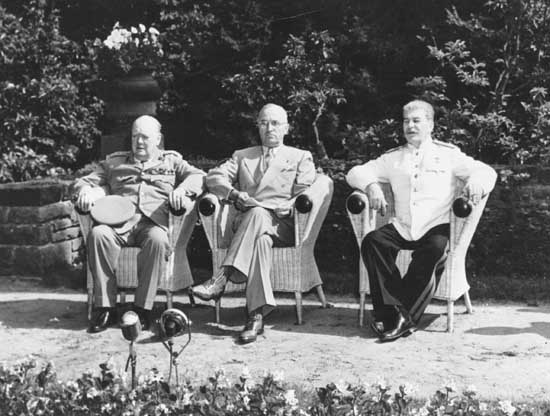
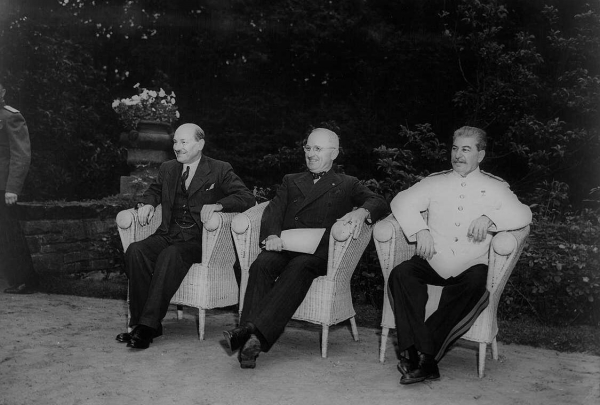 |
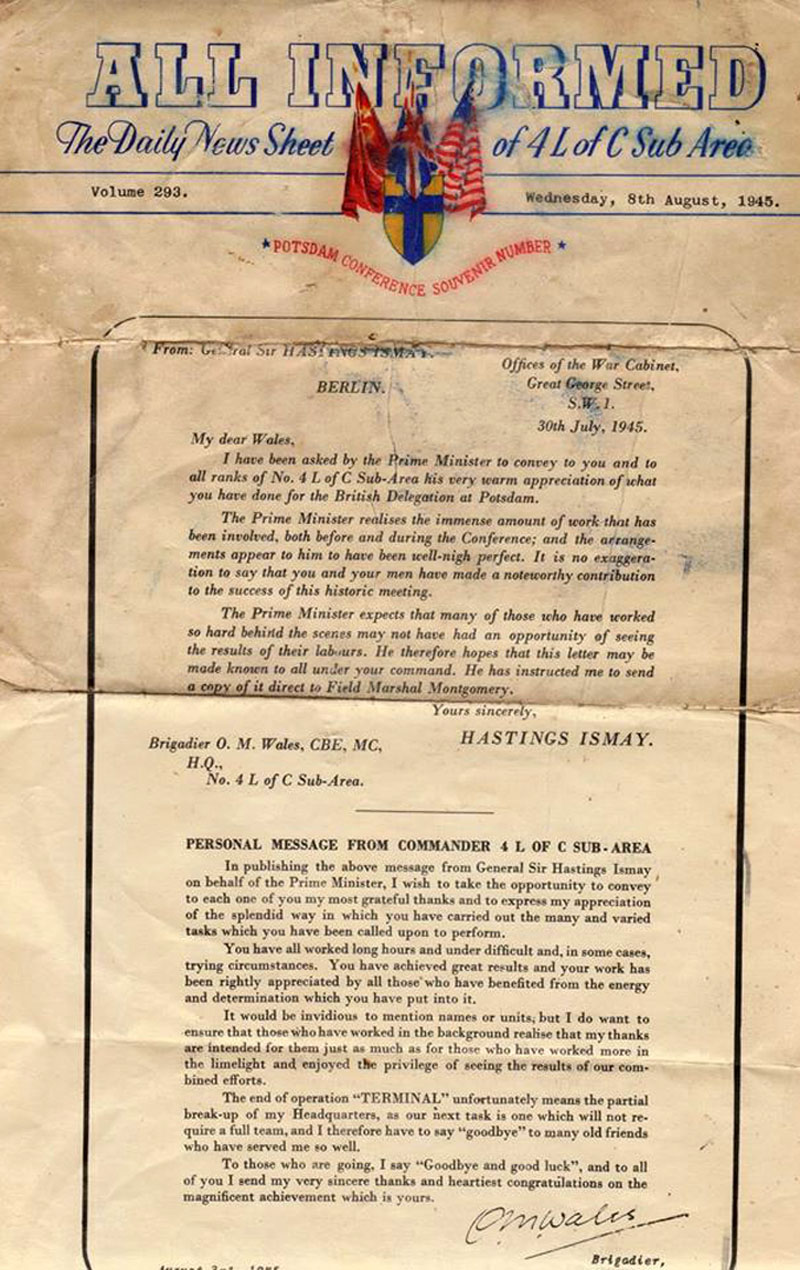 |
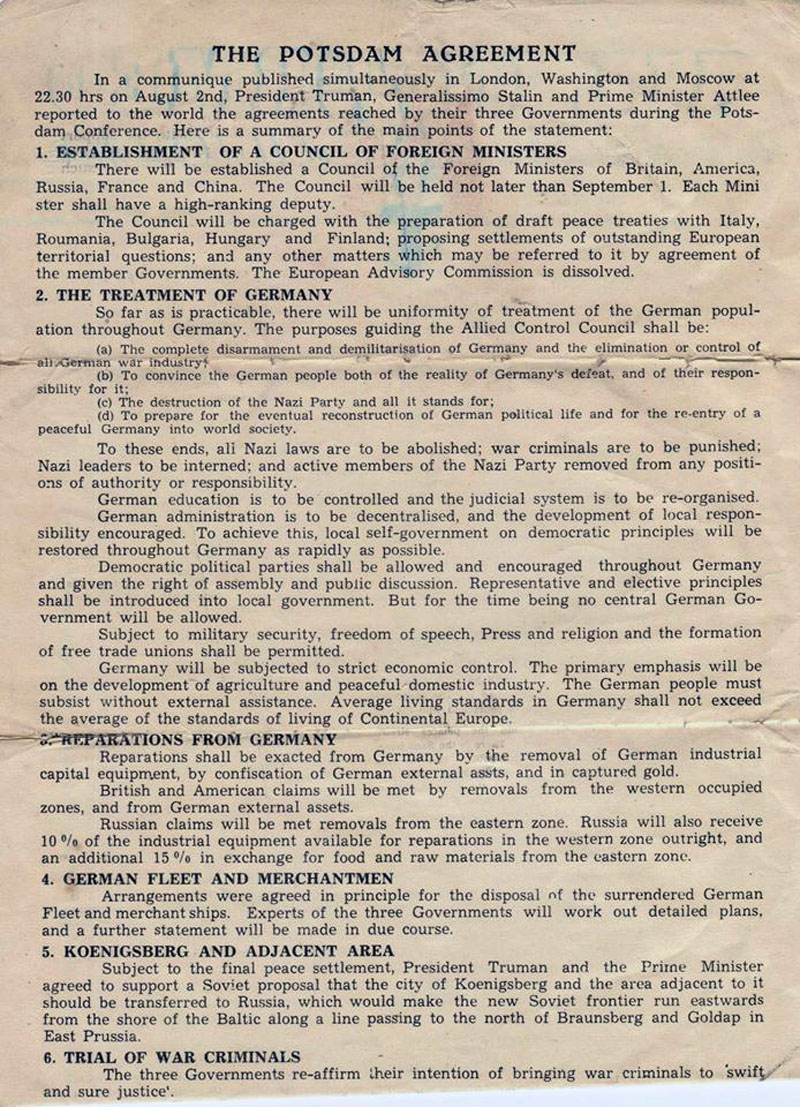 |
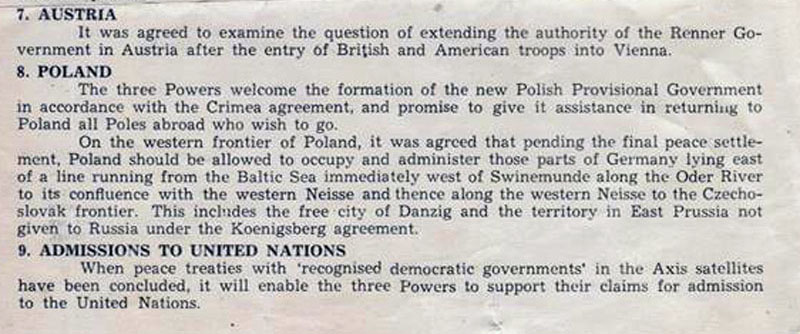 |
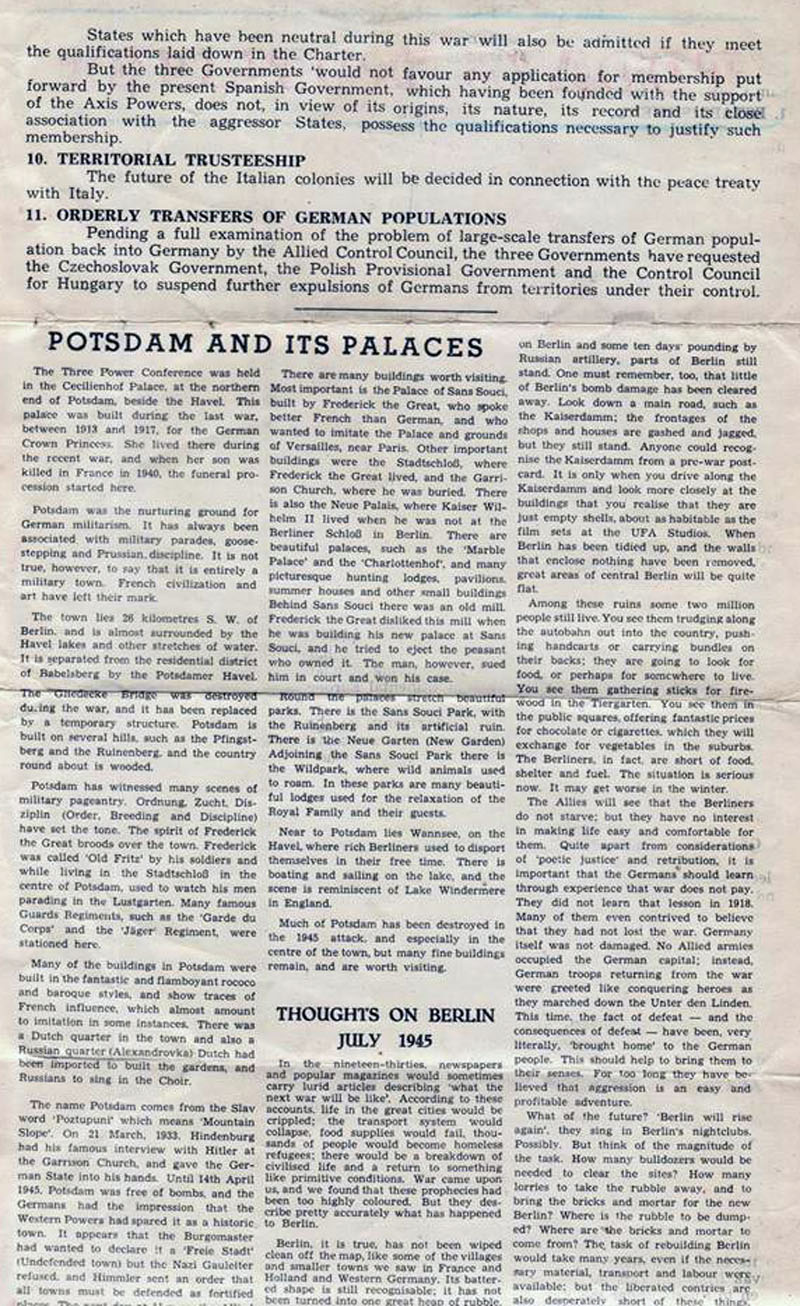 |
| Text Sources |
| http://www.historylearningsite.co.uk/world-war-two/the-war-conferences/the-potsdam-conference/ |
| See also |
|
https://history.state.gov/milestones/1937-1945/potsdam-conf http://www.history.com/topics/world-war-ii/potsdam-conference |